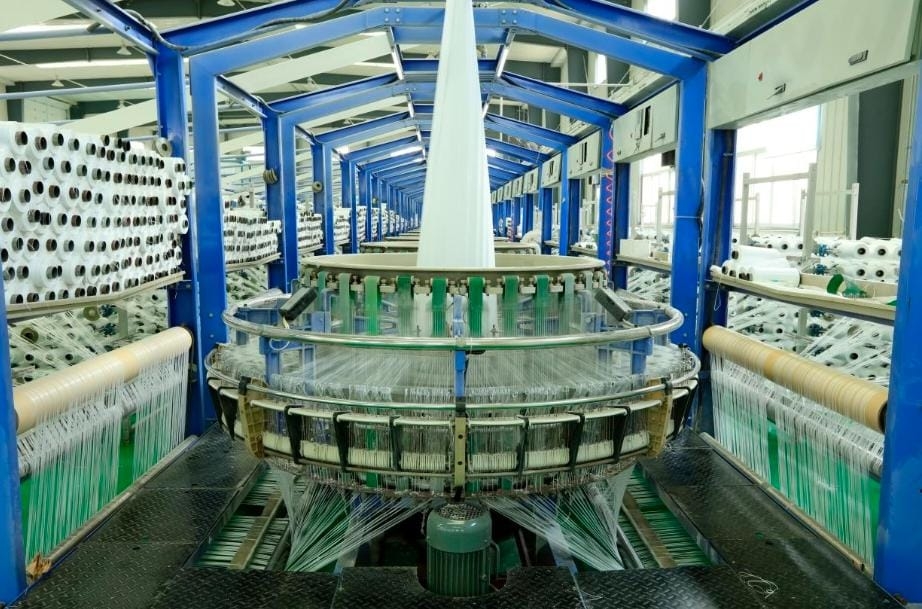Many Chinese enterprises have adopted the Belt and Road's recommendations on promoting international economic and trade relations. An increasing number of Chinese enterprises, including backpack manufacturers, are relocating their factories to Cambodia to optimize costs, expand markets, and reduce business risks.
Cost-driven-The "Lowland Effect" of Labor and Land
Many Chinese enterprises are beneficiaries of the Cambodia Free Trade Agreement. As one of the countries with the lowest economic levels in the world, Cambodia therefore enjoys tariff and trade preferences with multiple countries and regions.
To the EU: According to EBA policy, Cambodia is reportedly able to export goods to the EU without paying an average tariff of 10-15%. This stands in stark contrast to Chinese goods, which are subject to higher tariffs and the gradual elimination of the Generalized System of Preferences (GSP).
To the United States: A uniform 19% tariff is imposed on Cambodian exports to the U.S., while for same category it’s 37.5% ~ 55% from China origin. At the same time, Cambodia levies zero tariffs on all imports from the United States, thereby greatly promoting the development of bilateral trade.
To the Asean: Under the framework of the ASEAN Free Trade Area, Cambodian goods can basically enjoy 0% tariff when imported to ASEAN countries, which is absolutely beneficial to the 670 million people living in the market.
Cambodia's policies are highly beneficial to Chinese merchants, as they provide a good way to enhance competitiveness. A case worth studying is Synberry, a Chinese textile bag manufacturer. The company established a factory in Cambodia to avoid paying tariffs when exporting cosmetic bags, travel bags, school bags, and other types of bags to Europe and the United States.
Policy support —— "investment dividends" at the government level
The Cambodian government has introduced a number of preferential policies aimed at attracting foreign direct investment (FDI), including tax cuts, accelerated approvals and the provision of special economic zones for companies.
Foreign enterprises that invest over $1 million and establish production or employment entities can enjoy a 50% corporate income tax reduction for up to nine years, with the first three years being tax-exempt, the next three years fully exempt from corporate taxes, and the remaining six years subject to half taxation. For enterprises introducing production equipment and essential raw materials, tariffs and value-added taxes are also waived. Investment enterprises can also register and obtain approval through a "One-Stop Investment Service Center", with processing time ranging from 7 to 15 days—a significant improvement compared to China's 30 to 60 days.
Cambodia has established a number of special economic zones (SEZs), such as the Sihanoukville Special Economic Zone and the Phnom Penh Special Economic Zone, which provide well-developed roads, electricity, logistics facilities and trained personnel, as well as special policies such as tax convertibility and other preferential policies.
The Sihanoukville Special Economic Zone is the most prominent case, jointly developed by China Hongdou Group and the Cambodian government. By the end of 2023, the zone had attracted over 200 enterprises, 80% of which were Chinese companies, creating nearly 30,000 jobs and earning the title of "a benchmark project for Chinese enterprises in Cambodia".A typical case is the garment factory established by Hongdou Group itself, which reduced export costs by 15% through EBA tariff preferences, thereby generating over $100 million in foreign exchange earnings.
Strategic Layout--Globalization of Supply Chain and Risk Diversification
An increasing number of Chinese companies are establishing factories in Cambodia to achieve smoother supply chain operations. China has relocated labor-intensive industries (such as garment manufacturing, textiles, and electronics assembly) overseas while retaining R&D, design, and advanced manufacturing in China to establish a cost-effective "China-Cambodia-Globally" R&D supply chain.
In the face of rising factor costs, it is imperative to relocate production bases to reduce input costs. In addition, due to increasingly stringent domestic environmental regulations, increasing pressure for industrial upgrading and offshore demand, companies are more likely to diversify market risks. Geographically, Cambodia is located at the heart of Southeast Asia, adjacent to more developed manufacturing economies such as Thailand and Vietnam. The relatively low transportation costs enable rapid communication of demands within the ASEAN market. Data shows that the road transport cost from Cambodia to Bangkok is approximately $200, far lower than the $500 required to ship a container from Shenzhen, China to Bangkok.
Challenges and Breakthroughs
Under the strategic guidance of the leaders of China and Cambodia, cooperation in multiple fields has been further deepened and achieved significant progress. Both in economic and trade aspects, the cooperation between the two countries has been highly successful, with China maintaining its position as Cambodia's largest trading partner and largest foreign investor for many consecutive years. Despite Cambodia's inadequate infrastructure, low-quality labor force, and slow policy implementation, Chinese enterprises tend to address these issues by actively participating in special economic zones, training local workforce, and obtaining assistance from Chinese-funded institutions.
The relocation of Chinese enterprises' entire factories to Cambodia is a comprehensive outcome of cost reduction, market access, and risk diversification. Leveraging cheap labor, land resources, trade preferences, and government support, these companies can enhance their global competitiveness by adopting the strategic goal of "moving beyond China and establishing a global presence." This not only facilitates the globalization of Chinese enterprises but also provides economic opportunities for Cambodia, creating a "win-win" scenario.
Media Contact
Company Name: Xiamen Synberry
Contact Person: Cindy H
Email: Send Email
Country: China
Website: http://synberry.com





